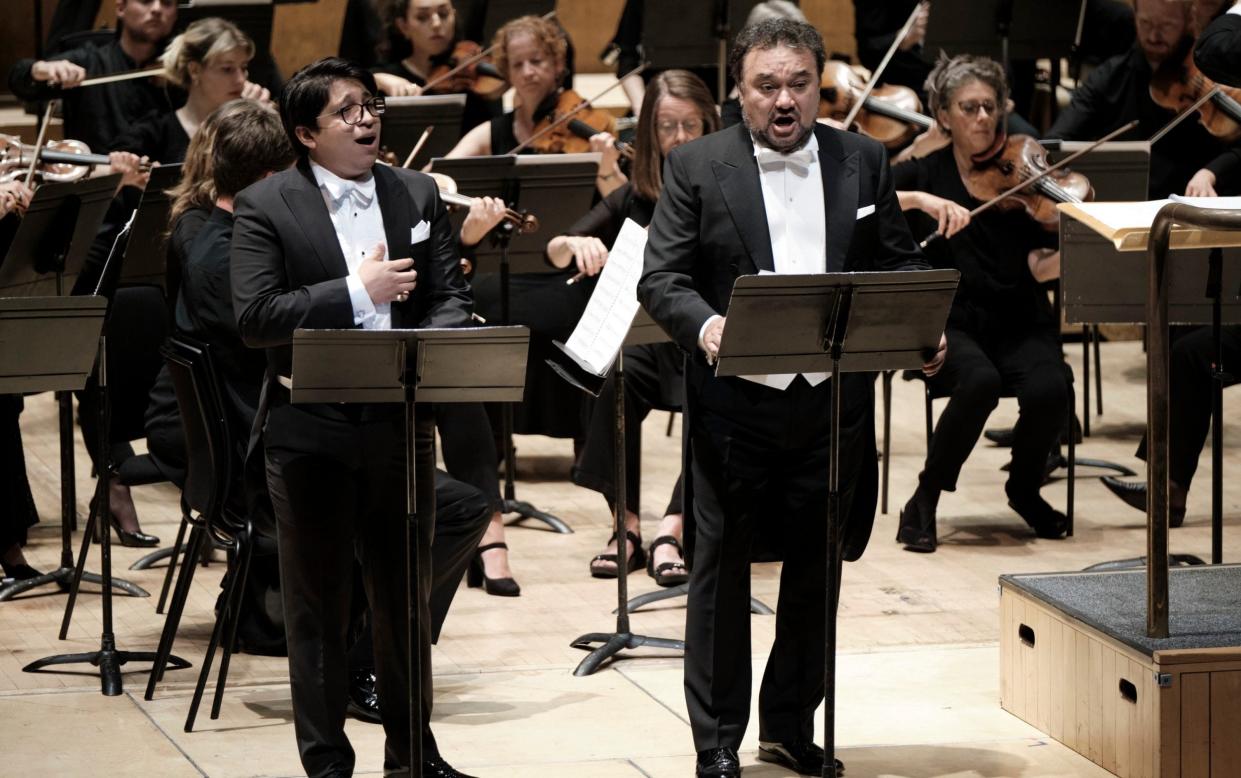Il proscritto: Opera Rara lend a fresh sparkle to a long-neglected gem

What on earth led the prolific Italian opera composer Saverio Mercadante in the middle of the 19th century to write an opera set in Edinburgh during the years of Oliver Cromwell? It isn’t realised with a huge amount of local colour (a reference in the text to bagpipes produces only a solo horn in the orchestra), but the effective libretto by Salvadore Cammarano uses the Royalist versus Cromwellian positions as the basis of a powerful human drama.
Malvina Douglas is married to Royalist Giorgio Argyll, but he is presumed dead in a shipwreck, and she is then to marry the Cromwellian Arturo Murray. Needless to say, this is then disrupted by the return of Giorgio alive, presenting her with an agonising choice.
After its 1842 premiere, the opera sank without trace, and was never revived: the world had some 59 other operas by Mercadante to consider. But during lockdown, conductor Carlo Rizzi found time to look at the score and, convinced of its quality, prepared it for performance by Opera Rara with the leading opera scholar Roger Parker.
Opera Rara had prepared fully for this performance by rehearsing and recording a CD for future release: as a result, although this was a concert performance, with the singers declaiming from their scores, it was spectacularly well delivered. Carlo Rizzi evidently knows every inch of the music, and conducted the excellent Britten Sinfonia with passion and a sense of committed ownership.
Mercadante does not do things by halves, and his score is full of scorching impact from the opening scenes, with chorus and off-stage brass as the marriage of Malvina and Arturo is celebrated. But you immediately also notice Mercadante’s inventive use of the orchestra, with a fluttering clarinet solo here, later a duet for flute and harp, and even a chirruping solo trumpet. Rhythmically a little four-square, the music is nevertheless sculpted with great care.
Highlights include the lyrical duet “Il mar fremente” for Malvina (Irene Roberts) and her brother Odoardo (a trouser role for Elizabeth DeShong) in the first act; the fierce conflict between Giorgio (Ramón Vargas) and Arturo (Iván Ayón-Rivas) in the second; and the stonking no-holds-barred scena for Odoardo with which DeShong brought the house down. Mercadante also contrives complex ensembles in which the characters combine: the first act ensemble “Omai l’arcan terribile” has seven soloists with conflicting emotions.
There is little direct love interest in the music until the second act, where Giorgio and Malvina have an anguished duet about their divided loyalties, and Giorgio urges her to remain with her new husband. Irene Douglas is dignified and vocally impressive throughout, and Ramón Vargas brings all his experience in this repertory to bear, but it is arguably his rival the Peruvian tenor Iván Ayón-Rivas – not yet well-known here – who steals the show with his ardent, freshly-minted voice.
Against all expectation, the opera goes into reverse gear in the short final act: it strips itself down to the bare essentials of the central conflict as the three main characters struggle with their individual feelings, and at the close Malvina, rather than choosing between her husbands, takes her own life.
That downbeat ending perhaps accounted for the piece’s initial failure, but its subtlety equally makes it more compelling for us today. Some rare opera revivals are worth hearing once; this one surely has a fighting chance of a new life, perhaps resounding at the Met in New York in one of those cleverly flashy stagings by David McVicar.

 Yahoo Movies
Yahoo Movies 
